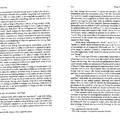Földes Károly írja:
A honlapomon is olvasható leírás a múlt század hatvanas éveinek egyik meghatározó gazdaságtörténeti átalakulásáról szól. https://foldeskaroly.wordpress.com/2016/10/06/eurodollars-two-wars-recycling/
Az angol szöveg elejét ide másolom:
“The peak post-war year for the American economy, relative to the rest of the world, was 1968, when American industrial production was more than one-third (34 per cent) of the world total. It was also the climax of the American global paramountcy, the year of Lyndon Johnson’s agony, the point at which the combined burden of foreign and domestic spending became too great to bear. Thereafter all was decadence. And with America’s relative economic decline came a progressive softening of the dollar as a reserve currency. This inevitably undermined the Bretton Woods arrangements. From the late 1960s Washington ceased to control the world monetary system.
To some extent it ceased to control its own currency since the quantity of unrepatriated dollars — what de Gaulle stigmatized as 'America's export of her own inflation' - now reached catastrophic proportions. The age of the dollar was over. The age of the Eurodollar dawned.



